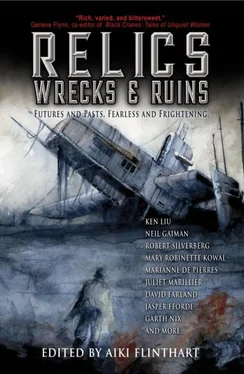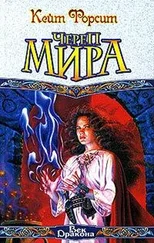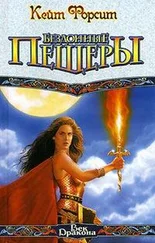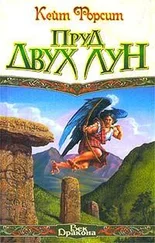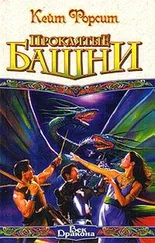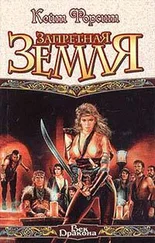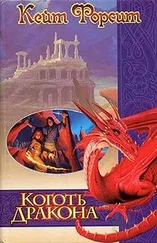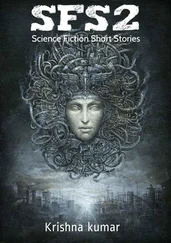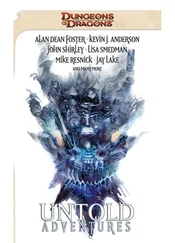We were not the only ones to make our way towards the jetty, for we of the fay are always curious and eager for any diversion. Children came running and shouting down the road, men laid down their harps or set aside their tools, and women came wandering out of the forests, many of them with flowers entwined in their hair and their mouths stained red with berries. By the time the ship was dropping her sails and sliding in beside the jetty, there was a jostling crowd waiting for her, all talking and laughing.
“Look at the red dragon on her sail,” Anna cried excitedly. “That is Arthur’s device! What can he be doing here?” The animation in her face faded, and she frowned. “It is only a month or so since I saw him. I hope nothing is wrong…”
Then she began to wave and call, for a tall, young warrior was leaning over the bulwark. He leapt down and embraced Anna affectionately. I looked him over curiously, for I had heard a great deal about the young king. He was as big and handsome as Anna had said, his hair and beard near as fair as hers and his eyes as blue. He was not yet twenty, but he was battle-hardened and battle-scarred. He had seen heavy fighting since he won the throne, I had heard, and certainly the guilelessness of his youth had been worn away, I could see that at once.
He met my gaze with his own, bold and raking. “So this is your beloved Argante. She is almost as beautiful as you describe, Anna, at least for a fairy. I wonder if she is as clever?”
I felt anger roaring in my ears. I cast him one disdainful glance and said, very distinctly, “It would not be difficult to be more clever than a bone-headed warrior whose ears are still ringing from the last battle he fought.”
King Arthur laughed. He cast me a look of admiration. If I had not sensed the mockery behind it, I might have half swooned from the warmth of it but I drew myself away, feeling again a shudder of dread. It may merely have been fear at the power such a man might have over me. I do not think so now, however. I am old enough now to recognize the chill breath of foreboding.
A small band of men alighted from the ship, among them a beautiful, slightly built man that I recognized. This was the bard Taliesen, who had once been a peasant boy in the employ of the great seer Ceridwen. One day, while she stirred her cauldron, three drops of a magical potion spat out and burned his hand. Sucking the burn, he had tasted the elixir of knowledge meant for her son and at once knew all the secrets of the universe.
Knowing Ceridwen would never forgive him, he fled. He turned into a hare; she turned into a hound. He turned into a fish; she became an otter. When he grew wings and took to the sky, she transformed into a hawk. At last, in desperation, he hid himself in the shape of a grain of wheat. Ceridwen changed into a hen and ate him.
That should have been the end of him but once Ceridwen resumed her usual shape, she found she was pregnant. In time she bore a baby boy who was so beautiful she could not bear to kill him. She trussed him up in a leather bag and threw him into the sea. Two days later he was rescued by a prince who raised the boy as his own, calling him Taliesin, which means “Shining Brow”. He grew to be a great bard and seer, though one with little love for the fay.
At the sight of Taliesen, I fell behind, troubled and unsure. All seemed well. King Arthur and his men were looking about them with pleasure. My indolent Anna was the most animated I had ever seen. Everyone was smiling and laughing. Everyone that is, except Taliesen the bard, and I.
The doors of the castle stood open, welcoming light spilling out into the gloaming. My grandfather sat in his throne at the head of the great hall, his nine white hounds lying at his feet. They raised their heads and snarled as King Arthur came in. I was glad to see how the king’s step faltered, though it was only for a moment. He ignored the growling dogs, with their ears and eyes as red as blood, and bowed low over my grandfather’s hand.
I left the men to their polite fencing, and withdrew to my rooms to change for what promised to be a long and tedious night, listening to Anna’s brother boast of his doings and watching her hang on his arm and believe every word.
When I came down, the great hall was set up with tables and trestles, the minstrels were playing, and King Arthur sat on my grandfather’s left hand, my father Owain on his right. On a side table sat the cauldron of plenty, its golden sides gleaming in the candlelight. It was one of the treasures of Annwn, made by Bran the Blessed himself. With pearls all round its rim, it could only be kindled by the breath of nine maidens. It would produce the most delicious food until all that sat at the table were replete, filled with new strength and vigor.
I saw how the eyes of all King Arthur’s men dwelled on the cauldron, but even then, I had no true understanding of what they planned to do. I blamed my unease on childish jealousy, and tried my best to suppress it.
My grandfather stood with some effort, for he was many centuries old now. He nodded at King Arthur and his men and raised his goblet.
“Welcome to my realm, my boy,” he said. “We are glad to meet you at last, for we have heard how you seek to bring peace to the land after a hundred years of bloodshed. We wish you well and are glad of the chance to forge strong bonds with you, who carry the blood of Llyr in your veins, even as we do. It is good that you should know us, for other races and other gods have come and we have been afraid that the old ways would be cast aside. May the Children of Llyr and the Children of Don flourish and stand strong, and may there be peace and plenty in the land!”
Goblets were drained with enthusiasm all round the room, though I noticed the strangers did not drink, just held their cups to their lips and pretended to taste the wine within. I smiled to myself. They believed the old superstitions that to eat or drink when in the land of the fay was to be trapped in that realm forever. What were they to do once the cauldron started pouring forth its bounty?
Except that it did not. When I and my eight sisters held hands and blew gently upon the cauldron, the water within barely trembled. A mutter of shock and consternation rose all round the room.
King Arthur turned on his sister. “Are all your tales of the cauldron of Annwn nothing but lies?” he hissed. “We have come all this way for a fairy tale?”
“There is a coward amongst us!” my father cried at the same moment. “The cauldron will not feed the craven.”
“Or the treacherous,” my grandfather said softly. He had heard King Arthur’s furious words, even if my father had not. “You think I did not notice that you refused to drink my toast? Even such fools as men hesitate to break the law of hospitality. You plan to steal my cauldron? And plunder the riches of my land? Is that the truth of it?”
“No, no!” Anna cried. “Arthur, you wouldn’t…” She cast a glance at me and I saw at once that she had been the one to tell him of our treasure, the cauldron that could feed and succor an army. I glared at her in sudden, bitter hatred.
My father had leapt to his feet, catching up his eating knife in one hand. “Treachery! You come with foul intent! The cauldron will not serve those with such base ambitions,” he cried. He was always impulsive, my father, quick to word and blow.
He lunged at King Arthur with his dagger, who dodged nimbly, seizing his own knife. There was a quick weave and duck and flurry of blows, and suddenly my father cried out and slumped to the floor. His blood sprayed across my face.
Trestles crashed against the flagstones as men leapt to their feet. All was confusion. My sisters screamed. I fell to my knees, cradling my father’s head. His hair was sticky with blood.
Читать дальше
